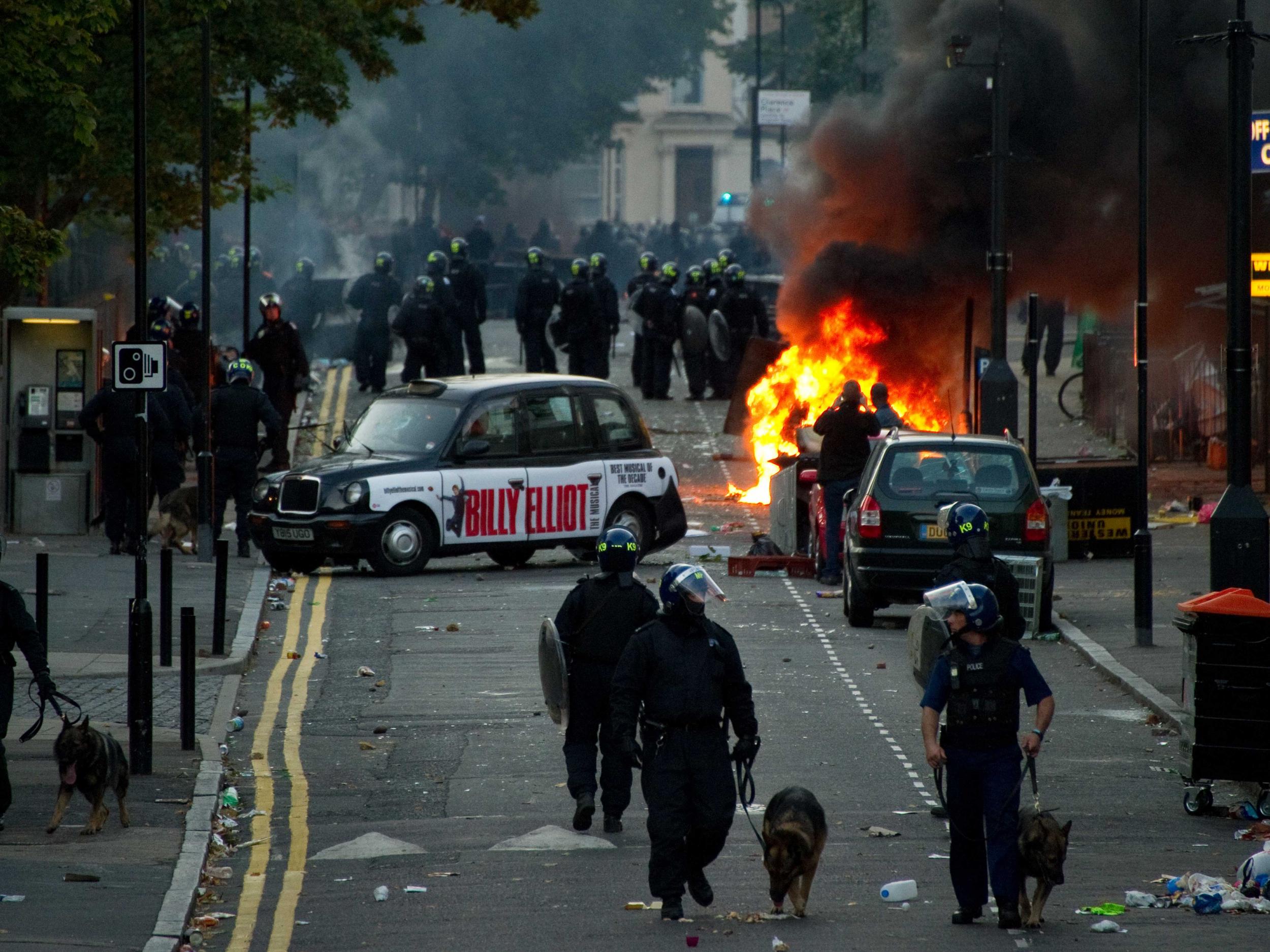Police chief warns forces would struggle to tackle riots after years of budget cuts
Chief Constable of West Midlands Police calls on government to boost investment in case angry demonstrations spiral out of control

Your support helps us to tell the story
From reproductive rights to climate change to Big Tech, The Independent is on the ground when the story is developing. Whether it's investigating the financials of Elon Musk's pro-Trump PAC or producing our latest documentary, 'The A Word', which shines a light on the American women fighting for reproductive rights, we know how important it is to parse out the facts from the messaging.
At such a critical moment in US history, we need reporters on the ground. Your donation allows us to keep sending journalists to speak to both sides of the story.
The Independent is trusted by Americans across the entire political spectrum. And unlike many other quality news outlets, we choose not to lock Americans out of our reporting and analysis with paywalls. We believe quality journalism should be available to everyone, paid for by those who can afford it.
Your support makes all the difference.Police would face “real challenges” tackling a repeat of the 2011 riots following years of budget cuts, one of Britain's most senior officers has warned.
A series of major incidents to hit the country in recent weeks has laid bare the strains faced by forces under financial pressure, raising the risk of a breakdown akin to that which hit the prison service in 2016, Dave Thompson said.
The Chief Constable of West Midlands Police called on the Government to boost investment, protect frontline policing including bobbies on the beat and cut bureaucracy in a blog for the National Police Chiefs' Council (NPCC).
He said: “The funding forces receive needs to be stabilised with real terms protection for policing as a whole.
“Last year we saw the prison service snap under pressure with riots in Birmingham Prison.
“We cannot afford this to happen to policing but the strain is showing from recent weeks and we'd have real challenges in dealing with something like the 2011 riots again.
“When things break recovery is never quick, and in policing it takes considerable time to recruit and train staff.”
Riots sparked by the police shooting of Mark Duggan in London saw civil unrest sweep across the country in August 2011.
Vandalism and looting spread to Birmingham, Bristol and Manchester over the following few days, with more than 5,000 crimes committed.
A total of 16,000 officers were deployed in London on one night alone in a bid to quell the violence.
The recent terror attacks in London and Manchester saw police resources required on a vast scale, with the latter atrocity leading to a nationwide deployment of officers.
Investment in counter-terror policing has increased, along with partial increases for firearms officers.
However Mr Thompson warned that much of the response to major incidents comes from core police budgets.
“The firearms commanders, casualty bureau, custody staff, body recovery teams and uniformed officers patrolling crowded spaces that are so central to preventing and responding to a terror attack are paid for by core police funding,” he said.
“Over two thirds of the policing effort after the Westminster attack was not counter-terrorism funded. This figure will be much higher following the Manchester attack.”
Once inflation and cost pressures are accounted for there will be less money every year for forces on top of real terms cuts of 18% since 2010, Mr Thompson warned.
The squeeze has left police and crime commissioners needing to increase local taxation “to the maximum” while many forces are using “considerable reserves to maintain current staff numbers,” he said.
Efficiencies can be found in the delivery of forensics, armed policing, surveillance and major investigations with the cash invested in other areas, Mr Thompson said.
He warned counter-terror policing is “in no place to deliver efficiency savings” and also called on the Government to cut red tape as a means to ease pressures.
“It's also time to ask why a growing proportion of the police budget is being allocated to managing complaints or non-policing spend at a time when our core role is under strain,” he said.
Mr Thompson said extra spending should target the growing cyber threat and urged policymakers “to think very carefully about the need for enhanced protection for our officers who run towards the terrorists”.
He praised the “incredible bravery” shown by officers involved in the response to the attacks in London and Manchester, while the display of public affection for the police recognised they are “unquestionably the frontline of our nation's security”.
However fighting the root causes of extremism cannot be done in the shadows or through more armed officers, Mr Thompson said.
“Police leaders value local neighbourhood policing so strongly, not from a dewy-eyed, sentimental yearning for the past but because it helps us gather intelligence, prevent harm and build public trust.
“A service that is not meeting the needs of local people is not likely to win their trust or assure them of their safety. Without investment or protection this time-served feature of policing will disappear at huge cost to our nation's security.”
Press Association
Join our commenting forum
Join thought-provoking conversations, follow other Independent readers and see their replies
Comments